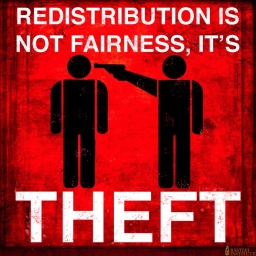Recently one of our candidates, Tom Laird, caused a stir at the local hustings in Leith for: “comparing taxation to rape.”
Now this may well have been a poorly conceived analogy devoid of context, and it will no doubt get flung back in the face of the party to the exclusion of other issues; but to compare is not to equivocate. Apples and Oranges can be compared.
The clip now exists on youtube under the uncharitable title, “Is taxation as bad as rape” – something Tam never claimed, so perhaps the basis of the comparison deserves a fair exploration.
In our daily lives we more or less take for granted that consent is the basis of morality. Consent is the difference between assault and a boxing match, murder and euthanasia, rape and love making, fraud and the transfer of assets, theft and a gift. A person who regularly punches their friend is hardly considered a friend, a manager who steals from his colleagues is hardly considered a business partner, and a man who takes a woman by force is not to be considered her partner but her rapist. These are the very principles that govern our personal conduct and our professional lives from day to day – we teach them to our children.
Yet, when it comes to the government, suddenly all notions of consent are thrown out the window. The government is expected to use the threat of force to gain compliance from its citizens. To square this circle we have created new, Orwellian names for the same actions. Because we can’t just call it “Going over to other peoples lands and killing them” we have to call it “a war”; because we don’t want to call it fraud, we call it “Bailing out the banks”; because no one would consent to “stealing from the unborn” we have to call it “national debt”; we can’t call it “kidnapping people for the victimless crime of smoking a plant” we have to call it “the war on drugs”; and we can’t legitimate theft so we have to call it “taxation” instead.
As Confucius once said, “The beginning of wisdom is to call things by their proper name.” When Tam’s stated that he did not consent to having his wealth redistributed because it was hard-earned he was pointing out that taxation is not a voluntary institution. In fact if another institution tried to do it we would label it an extortion racket.
Some people were outraged, and perhaps understandably so, but taxation has caused far greater outrages that a simply politically-incorrect analogy.
We are outraged that money that was extracted from us by force was used to pay for the wars in Iraq and Afghanistan, that it continues to be spend on corporate welfare for the wealthy and on creating a permanent underclass when it comes to the poor, on the bankers bailouts, on locking people up or victimless crimes, that £400 million was spent on a parliament building that was meant to cost between 10 and 40 million, and that £1bn was spent on 12 miles of tramlines when we were told it would take half of that sum to build 20. All of this was done without our consent. And some of it, like the wars and the jails, even resulted in a number of rapes.
The Scottish Libertarian Party obviously acknowledge that our current political system cannot run without any taxes at all, but that doesn’t mean the government has the right to violate the personal property of its citizens with impunity to pay for just about anything that anyone may or may not agree with. The government has a responsibility to carefully consider all expenditure (at best, a necessary evil) before violating our consent to pay for it.
- Alan William Findlay (Party Leader)






